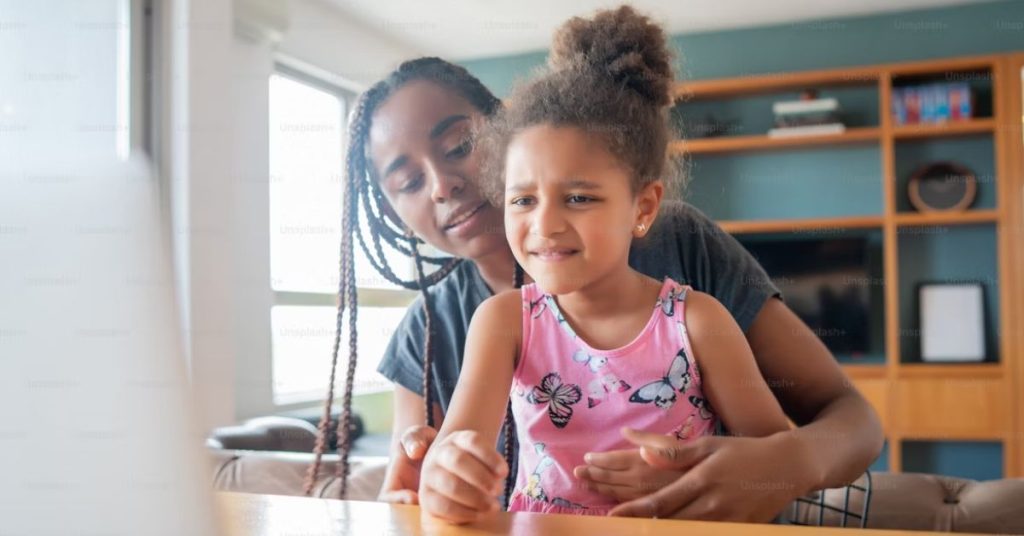
Ever notice how co-parenting relationships can feel like learning to dance with a new partner—especially after separation or divorce? At first, every step feels awkward, every decision a little tense. I’ve been there myself, trying to keep calm during tough conversations while remembering that it’s not about me—it’s about creating peace for the kids.
Over time, I discovered that managing conflict isn’t about winning arguments but building understanding, even when emotions run high. In this guide, I’ll share simple, proven ways to ease tension and bring balance back into your co-parenting journey—so you can focus on what truly matters: raising happy, secure children together.
Managing conflict in co-parenting relationships is crucial for the well-being of the children involved. After a divorce or separation, co-parenting can be challenging, but with the right strategies, it is possible to navigate these challenges effectively.
Establishing clear boundaries and communication strategies is essential for the healthy development of the children. By understanding the principles of successful co-parenting, parents can work together to provide a stable and loving environment for their children.
Key Takeaways:
- Effective co-parenting requires clear boundaries and rules.
- Communication strategies are crucial for successful co-parenting.
- A stable environment is essential for the healthy development of children.
- Co-parenting plans can help in managing conflicts.
- Understanding co-parenting principles can lead to a more harmonious relationship.
The Foundations of Successful Co-Parenting
Co-parenting can be a complex and challenging journey without the right foundation. Successful co-parenting is built on understanding and cooperation between both parents. It’s about creating a stable and nurturing environment for the children despite the separation.
1. Identifying Common Sources of Conflict
Conflicts in co-parenting often arise from differences in parenting styles, communication breakdowns, and unresolved issues from the past. Identifying these sources is the first step towards resolving them. By recognizing the root causes, parents can take proactive measures to mitigate conflicts.
2. Understanding How Conflict Affects Your Children
Understanding how these conflicts affect the children is crucial, as it can impact their emotional and psychological well-being. Children who witness frequent conflicts may experience anxiety, depression, or behavioral problems. It’s essential for parents to be aware of this impact and strive to minimize conflict.
3. Setting Realistic Expectations for Your Co-Parenting Journey
Setting realistic expectations can help parents navigate the challenges they face. By being aware of the potential pitfalls, such as co-parenting mistakes to avoid, parents can work together more effectively. This includes being open to co-parenting therapy sessions or benefits of co-parenting counseling to improve their co-parenting relationship.
5 Practical Strategies to Reduce Co-Parenting Conflicts
Successful co-parenting hinges on the ability to manage conflicts effectively. Co-parents can significantly reduce conflicts by implementing strategies that promote cooperation, understanding, and clear communication.
1. Establish Clear Boundaries and Consistent Rules
Setting clear boundaries and consistent rules is essential for creating a stable environment for children. This involves agreeing on discipline methods, daily routines, and expectations for behavior. Consistency is key to avoiding confusion and ensuring that children feel secure.
2. Develop a Business-Like Communication Approach
Adopting a business-like communication approach can significantly reduce misunderstandings. Co-parents should focus on the issue at hand, avoiding personal attacks or emotional language. Using clear and concise language helps to ensure that both parties are on the same page.
3. Create a Detailed Co-Parenting Plan
A detailed co-parenting plan outlines the responsibilities and expectations of each parent, reducing the potential for conflict. This plan should include scheduling, financial responsibilities, and decision-making processes. By having a clear plan, co-parents can minimize disputes.
4. Use Technology to Streamline Co-Parenting Logistics
Utilizing technology can greatly simplify co-parenting logistics. Co-parents can use shared calendars for scheduling, apps for communication, and online platforms for managing expenses. This helps to reduce misunderstandings and improve coordination.
5. Practice Emotional Self-Regulation Techniques
Practicing emotional self-regulation is crucial for managing the stress and emotions that arise during co-parenting. Techniques such as mindfulness, deep breathing, and self-reflection can help co-parents remain calm and focused, even in challenging situations.
By implementing these strategies, co-parents can significantly reduce conflicts and create a more harmonious co-parenting relationship. Effective co-parenting is not about eliminating conflicts entirely but about managing them in a way that prioritizes the well-being of the children.
- Establish clear boundaries and rules
- Communicate effectively
- Create a detailed co-parenting plan
- Use technology to your advantage
- Practice emotional self-regulation
Conclusion
Effective co-parenting is crucial for the well-being and stability of children after divorce. By understanding the foundations of successful co-parenting and implementing practical strategies, co-parents can reduce conflicts and create a more loving environment.
Seeking co-parenting advice from counselors and utilizing co-parenting support services can provide additional guidance and support. Consistency is key to successful co-parenting, and by working together, co-parents can navigate co-parenting challenges and solutions to provide a positive environment for their children to thrive.
Co-parents can learn how to co-parent peacefully by establishing clear boundaries, developing a business-like communication approach, and practicing emotional self-regulation techniques. The importance of co-parenting consistency cannot be overstated, as it directly impacts co-parenting for better child stability.
By prioritizing the needs of the children and maintaining a cooperative co-parenting relationship after divorce, co-parents can ensure a stable and supportive environment. For those seeking co-parenting support and counseling near me, there are resources available to provide guidance and support throughout the co-parenting journey.
FAQs:
What are the most common sources of conflict in co-parenting relationships?
Common sources of conflict in co-parenting relationships include differences in parenting styles, communication breakdowns, and unresolved issues from the past. These conflicts can be mitigated by establishing clear boundaries and consistent rules.
How does conflict in co-parenting relationships affect children?
Conflict in co-parenting relationships can impact children’s emotional and psychological well-being, potentially leading to anxiety, depression, or behavioral problems. Understanding the effects of conflict on children is crucial for co-parents to navigate their challenges effectively.
What are some effective co-parenting communication strategies?
Developing a business-like communication approach can reduce misunderstandings and conflicts. Co-parents can also utilize technology to streamline co-parenting logistics, making it easier to manage schedules and communication.
How can co-parents establish a successful co-parenting plan?
Creating a detailed co-parenting plan outlines the responsibilities and expectations of each parent, reducing the potential for conflict. Co-parents can also benefit from seeking advice from counselors and utilizing co-parenting support services.
What are some co-parenting tips for managing stress and emotions?
Practicing emotional self-regulation techniques is essential for managing the stress and emotions that can arise during co-parenting. Co-parents can also benefit from prioritizing the needs of their children and maintaining a consistent co-parenting schedule.
How can co-parenting counseling support co-parents?
Co-parenting counseling can provide co-parents with the tools and strategies necessary to navigate their challenges effectively. Counseling can help co-parents establish clear boundaries, develop effective communication strategies, and manage conflict.
What are some benefits of co-parenting consistency?
Consistency is key to successful co-parenting, providing children with a stable and loving environment. Co-parents can benefit from maintaining consistent rules, schedules, and communication to reduce conflict and promote a positive co-parenting relationship.
How can co-parents navigate co-parenting during the holidays?
Co-parents can navigate co-parenting during the holidays by establishing a clear plan and communicating effectively. Prioritizing the needs of their children and maintaining a consistent co-parenting schedule can also help reduce conflict.

